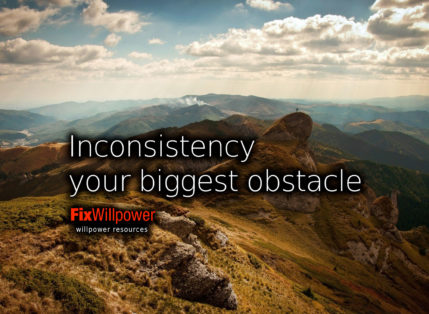One day in Italy I went out in the morning on my snowboard. When the slopes closed 7 hours later, I had snowboarded over 65 miles.
I was tired. But the whole thing wasn’t hard. I barely stopped for eating and drinking. Then I went out again on the next day and did it again.
Why wasn’t it hard?

Right now, when I write these lines, I have to push myself to do it. The pushing part will get easier as I build momentum, but the work I do still takes effort.
Why are some things hard when activities that take as much effort feel like play?
What can we do to make work easy?
What is work?
Why is thinking hard?
Physical work
Physical work consists of two parts. First, the raw muscle power. I can’t lift a 1000-pound concrete block. This is physically impossible for me.
Let’s get closer to the realm of possibility. I have never tried, but I think I can deadlift 200 pounds. But can I do it twice? Three times? If I have to do a set until failure. How many times could I lift 200 pounds?
Let’s say it’s 5 times.
Now it gets interesting. Physical work turns into mental work. Maybe I have the energy in my physical body to do the sixth repetition.
Will I do it?
Some studies show one more repetition, the hardest one where you really push yourself mentally gives you outsized results. The sixth repetition would add more than the fifth. (I couldn’t find the link to the study, if you know where to find it please paste the link in the comments).
The repetition with heavy weights was an extreme example. Most people fail to make the last repetition every day. Their regular rep count is zero and they don’t have the mental toughness to make the first repetition.
Why is that?
Mental activity and work
Our brains work constantly.
Mostly the brain operates in the System 1 what Daniel Kahneman described as automatic. It’s also easy. You don’t have to exert any self-control to keep your inner monologue going.
The mental activity falls into four broad levels of difficulty. I’ll explain each level below:
Thinking is the hardest work there is, which is probably the reason so few engage in it. ~ Henry Ford
Automatic
This is the thinking you always have in your brain. For most people, it’s inner monologue. I recently found out that some people do not have an inner monologue and their heads are filled with images and concepts.
The automatic thinking happens when there are no demands on our cognitive abilities and the mind is more or less resting.
But even in that state you may get tired. When watch a late-night movie in your home you may tune out and not process even the light entertainment coming from your TV.
Easy
Easy mental activities are a step up from automatic. In this category, we have light conversation with friends and family. Doing mental tasks that you have mastered. Remembering things, you know by heart.
In this case, you don’t feel any effort. You just do what comes naturally. You don’t keep score if the thing you said to your friend is funny enough or do you have to try again until you get it right.
Easy mental activities may become hard when you are distracted or tired.
Let’s say you try to read an article while the TV is on and people are talking near you. You read the same paragraph over and over again. When you are concentrating on one, then you are either multitasking or not paying attention at all to the less demanding task.
Another situation occurs when you are exhausted, then you can’t process even the light conversation. If the person you are talking with needs an answer, then the effort becomes moderate or even hard.
I once experienced firsthand how challenging it is to keep up with light conversation when you are completely physically exhausted. I was running an ultra-marathon and was on my 100th kilometer. My friend came to run with me to keep me company. That was great! However, he was talking constantly. It was so hard to follow the conversation after you have run for over 12 hours. Finally, I asked him to shut up.
Moderate
Next comes what most of us call work. You have to exert yourself mentally. The results of your thinking should make sense and adhere to a certain standard.
For example, when I’m writing these lines, I try to avoid typos and writing nonsense. I want the sentences to form a meaningful string of ideas. I have to think what to write next and stay on the topic.
When I write or think about an unfamiliar topic, it’s harder. If I would just write whatever comes to my mind, then it would be a lot easier.
The effort needed for moderate work is not much. The main push comes in the form of the initial decision to get going. After that you build momentum and could work for hours. Sometimes people get into a flow state and do their best work in the moderate effort zone.
The trick is to get going. Usually you only need 5 or 10 minutes to gather momentum. After getting your speed up, it is important that you will not get distracted or you have to start all over again. Having a workplace where no one can distract you helps. Distractions lead to multitasking.
When you get tired from moderate mental work, then it’s just pure tired. Not so much mentally tired, but you get sleepy and your daily energy reserves are ending. For example, after a long day at the office. You have had hours upon hours of metal exertion, and it takes its toll.
The same happens when you do hard physical labor for a full day. All you want to do is to lay back and put on the TV. This is where the ego depletion comes in.
However, it doesn’t matter how you call it. If you work for 8, 10, 12 or 16 hours straight, your focus and quality of results declines. Sure, I have stayed up for 36 or even 40 hours working on a project. I got it done. But the results would have been better if I had worked on it in more reasonable sessions.
Another example of moderate work exhaustion happened to me on a completely regular workday. I started early in the morning with deep work sessions where I was in a flow state. I worked for 5 or 6 hours on interesting but not mind-breakingly hard tasks. After that, I had a webinar for 4 hours.
Then I had some housekeeping tasks, email, project management and other small activities. Nothing special, definitely tired, but not exhausted. As the time was only around 5pm, I didn’t think that I had worked for so long.
But I had scheduled a brainstorming session at the end of the day. It was an online meeting that lasted for an hour. Halfway through the meeting, I felt that I had trouble coming up with ideas. I had some ideas, but the speed and quantity wasn’t what I expected. I thought, “OK, whatever, maybe not my best day.”
I completed the conference call and started to finish my day. Then it hit me, and I felt becoming slow. I had worked for 11 and a half hours plus breaks.
When I finished my workday, I had no energy left for any meaningful activities.
A dream does not become reality through magic; it takes sweat, determination, and hard work. ~ Colin Powell
Hard
Finally, there’s hard mental labor.
It is the work where you push and push. You focus on the hardest portions of the work. You fail constantly and then you go back to the parts where you are the weakest. You feel the pain of not mastering the subject. Constantly moving to the bits where you are the least experienced keeps you on your toes.
Practicing an instrument where you play only the hardest parts. Solving math problems, you just getting to know. The important part is to get continuous feedback on how you are doing.
At some point I wanted to improve my English pronunciation. I downloaded an app and used it to evaluate my proficiency. The app gave you a percentage rating for each exercise and an overall score on various items like the schwa sound and different variations of sh, s, z and ch.
I decided to practice for 30 minutes every day. Every day, when I started, I selected an area where my overall score was the lowest. Practicing the same word or sentence over and over again until I got it right. Right meant above 95% for me in this case.
It was really hard. That’s the reason I kept the practice session short. If it would have been an hour or more, then I would probably have skipped every now and then. But with the 30-minute sessions I could keep do it every day.
The effort in hard mental work is a lot. You don’t really look forward to doing it. But you know you have to do it to get the results you are after.
If you do this type of work for several hours, then you will be exhausted. It’s like running a marathon tired. If you run a marathon to get your personal best, then you push the limits of what are capable of. After 3 hours of pushing yourself on the limit, you are on the brink of collapse.
I have never pushed myself to collapse from mental work. Probably because I have not gone all the way. Maybe at 98%.
But even after that you are done.
You want to sleep.
Hard work beats talent if talent doesn’t work hard. ~ Tim Notke
The level of difficulty for different people
Once a client asked me, why do I work so much. I thought about it and came up with several answers.
First reason is, I’m slow. I think slowly and I bonder the potential options where other would just choose one and run with it. I hope it’s just not laziness on my part.
Second reason is that I often play around with unpaid work. For example, I experiment with marketing tools, I write copy that will not be used, and I spend time with tasks that will only pay when the project succeeds.
The reason for doing the things in the above example is I don’t prioritize well. I waste time on low income work and then I have to work more to meet the goals I have set for myself.
Another reason I work too much is also connected to project management and prioritization. I procrastinate like crazy. I just keep not finishing the tasks I start. I have at least 100 thousand words of articles in my documents which I could publish after a little editing. I don’t do it and all the time I have spent on those material is wasted.
Later I got another answer. Hobbies. My work is my hobby. I could work on the things that I do even if I wouldn’t get paid. I would need to make money to stay alive, but the work itself is interesting enough for me.
I have a friend who works about half as much as I do. He is approximately as successful as am I.
He’s in the same field as I and at the same level. He probably makes a bit less money than I do, but he works one third to one half less than I do. I don’t mind working as much as I do but I would need to focus on more productive activities.
What can you deliver?
There are good time and bad times when working.
First, there’s the part of work that’s unpleasant.
The unpleasant part is when you messed up because you didn’t give it your all or you didn’t do what you promised.
You can’t avoid messing up, but you can minimize it by keeping your promises and giving it your all every time.
If you left something unfinished because you overestimated your skills but gave it your all then you are OK in your own eyes. Learn from it, understand your limits, expand what you can do.
Idea: Always give it your all. If you are not sure you can do something, let others know you will give it your all, but it may not be enough. Don’t make promises if you don’t know you can deliver.
This is the difference in input versus output goals. You can always promise to give it your all, but sometimes you can’t promise it will be enough.
Satisfaction lies in the effort, not in the attainment. ~ Mahatma Gandhi
The benefits of hard work
This leads to the good part of hard work.
Sometimes you take on a task you aren’t sure you can finish. You finish it and you grow.
The good part of hard times is when you are trying to get better. Practicing the skills you haven’t mastered yet is hard. Sometimes it’s deliberate practice, and sometimes it’s less formal.
You focus on the parts where you suck, and you keep failing. You don’t get to the flow state because the work is much harder than you can handle. It’s often frustrating.
This is the work where you grow.
Think about the snowboarder trying to learn a complex trick. Lots of bruises and maybe broken bones. This is one reason I suck at snowboarding, I’m not willing to pay for this skill in broken bones.
But you don’t have to break bones to get frustrated. When I practice English pronunciation, I sometimes think maybe I’m just too dumb to get it right.
- You have to get through the frustration.
- You have to master the boring part of endless repetition.
- You have to start loving the process of growing.
Focus on the progress you have made. If you don’t then you will give up before you reach your goal.
Then if you fail, you can say you gave it your all. You will try again tomorrow and the day after that.
Frustration of not getting it
Then there are hard times.
I practice English pronunciation with and app. The app gives me sentences to say and then scores what I said. This is hard. As the app gives me immediate quantified feedback, I get frustrated when my performance is not on the level I want it to be.
This practice is a different kind of hard. When I work on my writing or creating presentations for my seminars, then I often enter the flow state. It takes 5 to 15 minutes to get going but after that it’s flow.
What makes it hard for me?
I think it’s the frustration of not performing as well as I would like.
I repeat the sentences over and over again, until I get them right. In my case, right means anywhere between 95 and 100 percent.
When I practice with the app, I feel it’s hard.
What is hard?
There’s no flow in deliberate practice. You constantly work on the things more advanced than your current level. I don’t think I spend more calories. Or maybe I do. How to measure the calorie-expenditure during the mental task? What is my heart rate during the practice session?
I’m a great believer in luck, and I find the harder I work, the more I have of it. ~ Thomas Jefferson
Learn all the time
You can learn from a book, but you have to practice in the real world. Read more about learning.
Most people don’t do it because practicing new things on your job will lead to mistakes. The mistakes may lead to bad outcomes and people chose stagnation over growth to avoid the problems.
If you want to grow you have to practice. Try to find an environment conducive to experimenting and growing.
Practicing will lead to mastery and it will open up your world.
All this practice leads to good times.
Good times are when everything is going according to the plan or even better.
It’s also good times when you are working on something and get to the flow state.
For me it’s when I give seminars on the topic, I’m familiar with. The best experiences happen when the work is just the right amount of hard. I can do it for hours without getting tired or feeling uncomfortable.
If you have any ideas why is work hard, let me know in the comments.
Idea: For athletes and performers, the practicing is the work. For most other professions, work is the work. Make sure you slip some practicing into your work.
__________________
Cover image Pexels


![Read more about the article Host a Party to bring Friends and Family Closer [VIDEO]](https://fixwillpower.com/wp-content/uploads/host-a-party-429x314.jpg)
![Read more about the article How to Increase Willpower and Determination to Get Massive Results [VIDEO]](https://fixwillpower.com/wp-content/uploads/2018/07/increase-willpower-429x314.jpg)